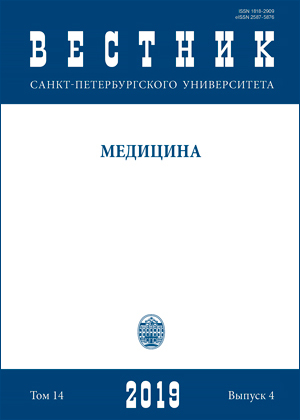Evaluation of Toll-like receptors expression in rat brain under alcoholization and ethanol withdrawal
DOI:
https://doi.org/10.21638/spbu11.2019.412Abstract
In experiments on rodents and in the study of postmortem brain samples of people suffering from alcoholism, it was shown that ethanol increases the expression of Toll-like receptors in the brain, which persists for a long time. Toll-like receptors are known to be also involved in the development of autoimmune reactions. In the present study the expression of Toll-like receptors in hippocampus, amygdala, and medial entorhinal cortex of rats during prolonged alcoholization and alcohol withdrawal was assessed. In the group of prolonged alcoholization with 20% ethanol for 1 month there was no change in Toll-like receptors mRNA levels in the studied rat brain structures, except for a slight decrease in Toll-like receptor 3 mRNA levels in the hippocampus of alcoholized rats and its slight increase in medial entorhinal cortex. However, Toll-like receptors gene expression undergoes changes in all rat brain structures studied during alcohol withdrawal.
Keywords:
rat, brain, alcoholism, withdrawal syndrome, TLRs
Downloads
References
References
Downloads
Published
How to Cite
Issue
Section
License
Articles of "Vestnik of Saint Petersburg University. Medicine" are open access distributed under the terms of the License Agreement with Saint Petersburg State University, which permits to the authors unrestricted distribution and self-archiving free of charge.




